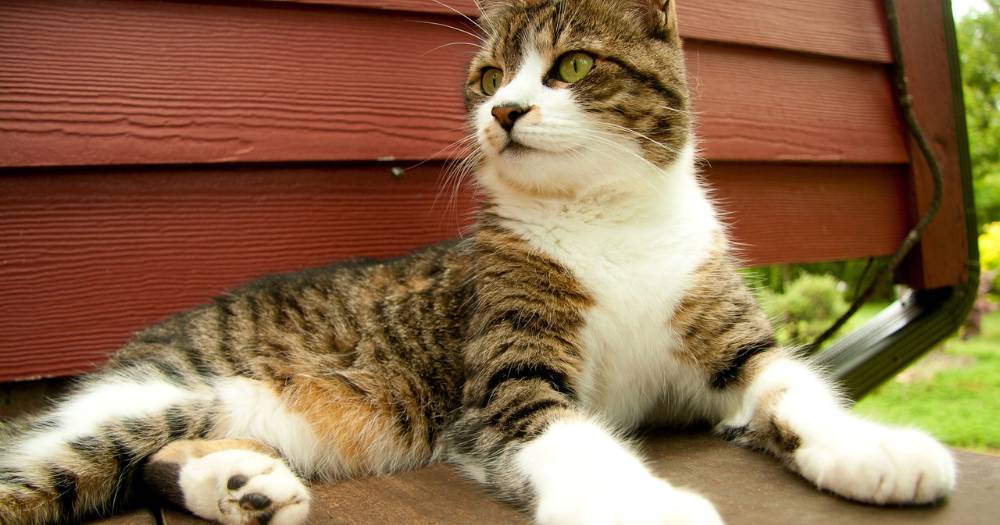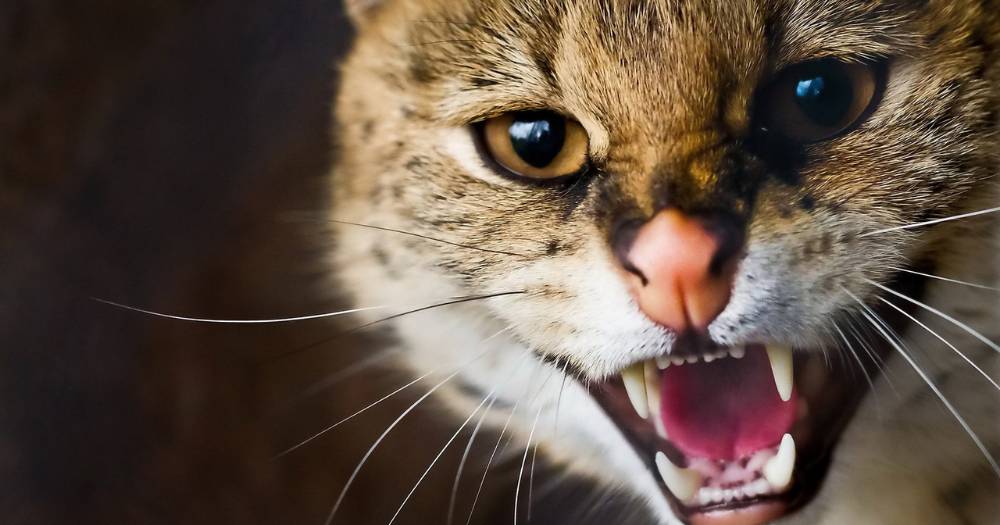Savannah cats have become increasingly popular as pets due to their unique and striking appearance, intelligence, and playful personality. However, there has been much controversy surrounding the safety of owning a Savannah cat, with some people claiming that it can be dangerous.
In this blog post, we’ll look at the question, “Are Savannah cats dangerous?” by looking at the breed’s traits, the possible risks of owning one, and other factors that affect their safety.
We will also seek the expert opinion of a veterinarian or animal behaviorist specializing in exotic animals to provide a balanced and informed answer. Whether you are considering owning a Savannah cat or simply curious about this fascinating breed, this post will provide valuable insights and information.
What is a Savannah Cat?
A Savannah cat is a hybrid breed of domestic cat created by breeding a serval, a wild African cat species, with a domestic cat. The breed was first developed in the 1980s by a breeder named Judee Frank, who wanted to create a cat with the exotic appearance of a serval but the temperament and manageable size of a domestic cat.
Savannah cats are known for their distinctive appearance, which includes a tall, lean body with long legs, large ears, and bold spots or stripes on their coat, resembling that of a wild cat. They are also highly intelligent and active, with a playful and affectionate personality that makes them popular with many pet owners.
Due to their unique characteristics and stunning looks, Savannah cats are often quite expensive and require special care and attention from their owners.
Are Savannah Cats Dangerous?
The answer to this question depends on who you ask. Savannah cats, like any other animal, can potentially be dangerous. However, it is important to note that their temperament and behavior can vary widely depending on factors such as their genetics, socialization, and individual personality.. To understand this better, let’s take a look at what makes them dangerous.

What makes them dangerous?
There is debate about whether Savannah cats are inherently dangerous. Some people believe that their wild ancestry and large size can make them dangerous to humans and other pets. Savannah cats are usually bigger and stronger than regular house cats. Some of them can get as big as 20 pounds or more.
This increased size and strength can pose a danger to smaller animals, such as rodents or birds, as well as to children who may accidentally provoke the cat. Additionally, Savannah cats are known for their high energy levels and strong hunting instincts, which can lead to destructive behavior and even aggression if not properly trained and socialized.
However, it’s important to note that individual Savannah cats may vary in temperament, and proper training and socialization can go a long way in ensuring that they are safe and friendly pets.
Are Savannah Cats Aggressive?
The temperament of Savannah cats can vary widely depending on the individual cat and their upbringing. Generally, Savannah cats are not considered aggressive towards humans when they are socialized properly from a young age. However, they can be high-energy and playful, which may lead to them accidentally scratching or biting while playing.
Sometimes, Savannah cats may act aggressively or like they own the other animals in the house, especially if they see the other animals as a threat or competition. Savannah cats do have a strong hunting instinct, and this can sometimes manifest in aggressive behavior towards smaller animals or birds.
As with any pet, it is important for owners to supervise interactions between their Savannah cat and other animals, especially if the other animal is much smaller or more vulnerable. Proper socialization and training can go a long way in preventing aggression in Savannah cats.
Early socialization with other cats, dogs, and humans can help them learn appropriate behavior and reduce the likelihood of aggressive tendencies. It is also important to provide ample opportunities for exercise and playtime to prevent boredom and destructive behavior.
In summary, while Savannah cats can be high-energy and display some territorial behavior, they are not inherently aggressive toward humans when properly socialized and trained.
Are Savannah Cats Good Pets?
Whether Savannah cats make good pets depends on a variety of factors, including an owner’s lifestyle and expectations, the individual cat’s temperament, and the level of care and attention the cat receives. Here are some things to consider when deciding if a Savannah cat is a good pet for you:
Activity level
Savannah cats are known for their high energy and need for play and exercise. They thrive in homes where they have plenty of space to run and play, and owners who are willing to engage in interactive play with them.
Socialization
Savannah cats require early socialization with humans and other animals to learn appropriate behavior and become comfortable with new situations. Owners should be prepared to invest time and effort into socializing their cats, as this can greatly affect their behavior as an adult.
Care requirements
Savannah cats require regular grooming, including brushing and nail trimming, as well as routine veterinary care. They also have a high prey drive, so owners should be prepared to provide plenty of interactive toys and playtime to prevent destructive behavior.
Personality
The personality of individual Savannah cats can vary widely, and it is important to choose a cat with a temperament that matches your lifestyle and expectations. Some Savannah cats are very outgoing and affectionate, while others may be more reserved or independent.
Can Savannah Cats Be Trained?
Yes, Savannah cats can be trained with patience, consistency, and positive reinforcement. Savannah cats are very smart and eager to learn, which makes them great pets to train. Here are some tips for training your Savannah cat:
Start early
Begin training your Savannah cat as early as possible to establish good habits and prevent undesirable behaviors from developing.
Use positive reinforcement
Use treats, praise, and affection to reward good behavior and encourage your cat to repeat it.
Be consistent
Consistency is key when training a Savannah cat. Use the same cues and commands every time, and be patient as your cat learns what is expected of them.
Use playtime as training
Savannah cats are highly active and love to play. Use playtime as an opportunity to train your cat, such as by teaching them to come when called or to fetch a toy.
Socialize your cat
Socialization is important for all cats, but especially for Savannah cats, who can be territorial and may exhibit aggression towards other animals if not properly socialized. Introduce your cat to new people, animals, and environments in a positive and controlled manner to help them learn appropriate behavior.
Pros and Cons of Owning a Savannah Cat
Owning a Savannah cat is a big commitment, and it’s important to weigh the pros and cons before making a decision. Here are some of the pros and cons of owning a Savannah cat:
Pros:
- Active and playful: Savannah cats are known for their high energy and love of play, making them great companions for owners who enjoy an active lifestyle.
- Intelligent and trainable: Savannah cats are highly intelligent and can be trained to perform tricks and even walk on a leash. They thrive on mental stimulation and enjoy learning new things.
- Striking appearance: Savannah cats have a unique and eye-catching appearance, with their large ears and spotted coats.
- Affectionate and loyal: Many Savannah cats are very social and affectionate, forming strong bonds with their owners and enjoying the cuddle time.
Cons
- High energy level: Savannah cats require a lot of play and exercise to keep them happy and healthy. They may become destructive or aggressive if they don’t get enough stimulation.
- Socialization requirements: Savannah cats need early socialization with humans and other animals to prevent aggressive behavior towards other pets and people.
- Expensive: Savannah cats are a rare and exotic breed, which can make them expensive to purchase. They may also require more expensive veterinary care than regular domestic cats.
- Not legal in all areas: Some states or countries have restrictions on owning Savannah cats due to their wild ancestry.
They are intelligent and trainable companions who are also highly active and require a lot of attention. However, potential owners should also consider the costs and socialization requirements of owning a Savannah cat, as well as legal restrictions in their area.
Conclusion
Savannah cats can be dangerous if not properly trained and socialized. They can also be intimidating to strangers due to their size and wildcat instincts.
However, if they are trained and socialized properly, they can make great pets and form strong bonds with their owners.
If you’re considering getting a Savannah cat, it’s important to take the time to research and understand what goes into owning one.

